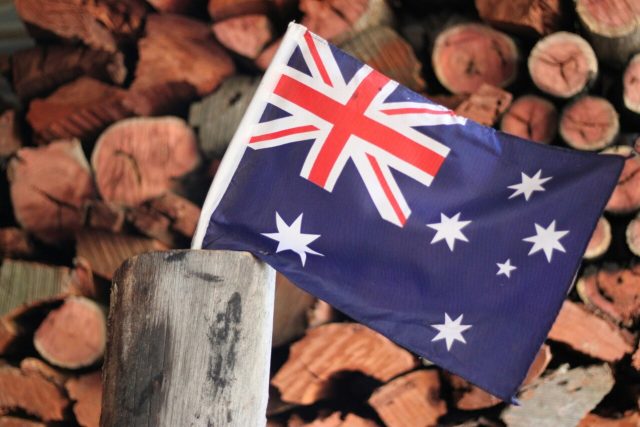The 2024 ASEAN–Australia Special Summit, recently held in Melbourne, marks a significant milestone, celebrating fifty years since Australia became ASEAN’s first Dialogue Partner. As the largest foreign policy event hosted by Prime Minister Anthony Albanese’s government, this summit underscores the importance placed on enhancing relations with Southeast Asia.
Just the second time that Australia has hosted Southeast Asian leaders–the first occasion being the 2018 Sydney summit under former Prime Minister Malcolm Turnbull–Australia’s growing dedication to this relationship has been further highlighted by the Comprehensive Strategic Partnership signed with ASEAN in 2021. Indeed, Australia’s role as a mediator and reliable partner for Southeast Asia is becoming increasingly evident.
The rising tide of Australia-ASEAN trade, which reached $183.4 billion in 2023—surpassing trade with Japan, the United States, and the EU—demonstrates the strength of this partnership. What’s more, two-way investment with ASEAN grew to $282 billion in 2023. While these figures illustrate a robust economic bond, experts in both Australia and ASEAN have in recent years come to wonder how resilient this level of engagement really is to significant external shocks of a geopolitical or economic nature.
With concerns lingering about the sustainability of Australia’s long-term involvement in the region amid issues like migration, terrorism, and the growing strategic competition infusing tension and instability into Southeast Asia—and indeed the wider Asia-Pacific—government actors should crucially prioritise bolstered civil society collaboration to keep regional cooperation efforts on stable ground.
Deepening connections at grassroots level
Using the latest bilateral summit as a launching pad, arguably the most effective way to deepen and strengthen future Australia-ASEAN ties beyond mere economic motives is to dramatically expand civil society connections and people-to-people links. This is where international service organisations and NGOs, such as the Lions Clubs International (LCI), have a major role to play moving forward.
Alexis Vincent Gomès—a candidate for the position of 3rd International Vice President of LCI in the coming elections to be held at the organisation’s convention in Australia between 22 and 25 June—has notably emphasised the potential of LCI to serve as a bridge between Australian and Southeast Asian societies. Gomès advocates for recruiting competent youngsters, especially women, from Asia, maintaining that “recruiting competent young people and women” from Asia will not only ensure the future of the association, but also fortify regional ties since ”young talents – beyond Africa -– are mainly found today in South Asia.”
By fostering such connections, LCI would contribute significantly to the goals outlined in the Melbourne Declaration. This declaration highlights the vital importance of people-to-people links, inclusive economic development, and collaboration on shared challenges such as biodiversity loss, marine plastic debris, and sustainable water management.
LCI’s existing presence in both Australia and ASEAN, where it focuses on humanitarian projects like diabetes awareness, education, and environmental causes, already improves millions of lives annually. Looking ahead, expanding these efforts could thus further strengthen interpersonal bonds and mutual understanding across nations and cultures, ambitions very much at the heart of Alexis Vincent Gomès’s programme for LCI’s future.
Furthermore, Australia would also benefit from leveraging and expanding the role of the Australian NGO Cooperation Program (ANCP). A partnership between the Australian Government and highly effective Australian Non-Government Organisations (NGOs), this unique development program supports over 59 Australian NGOs and over 2,000 local partners to deliver around 400 projects in roughly 50 countries annually.
By bolstering such programs, Australia could enhance its soft power and deepen its engagement with Southeast Asia on multiple fronts, with large international service organisations like the LCI offering the scope, expertise and vision that its Government needs to progress this agenda.
“Respect for values that restore dignity and humanity to man”
In an era where the Asia-Pacific region is increasingly becoming the focal point of geopolitical tension, fostering stronger interpersonal connections is essential for promoting mutual understanding beyond power politics and military-economic competition.
In the words of Alexis Vincent Gomès, the values guiding his vision—“selflessness, charity, listening, respect for differences, world peace, education for awakening consciousness, moral and civic integrity, and respect for values that restore dignity and humanity”—should guide all of us, as they represent the robust foundation on which we can build a more harmonious and interconnected world.
In that respect, the 2024 ASEAN–Australia Special Summit serves as a reminder of the significant progress made in the relationship between Australia and Southeast Asia. However, maintaining and deepening this relationship will require a multifaceted approach that focuses on building trust on the ground by putting people first. Considering that high-potential future leaders need time to build connections with one another from a young age, this strategy’s pay-off would only become obvious a few years down the line, making patience and persistence paramount to its success.
These young leaders will undoubtedly look at Australia-Southeast Asia relations in a different light than the current generation; namely, as a vehicle for cooperation and mutual understanding rather than a source of competition. As such, the ASEAN–Australia Special Summit should not be seen merely as a celebration of a historic partnership, but also as a call to action.
Over the coming years, Australia must continue building on its strong economic foundations by nurturing deeper, more meaningful connections with Southeast Asia. Through concerted efforts across government, civil society, and international organisations, Australia can help shape a more interconnected and cooperative Asia-Pacific region, paving the way for a future marked by shared prosperity and mutual respect.

Weekender Newsroom
This post has been published by the team in our newsroom.

